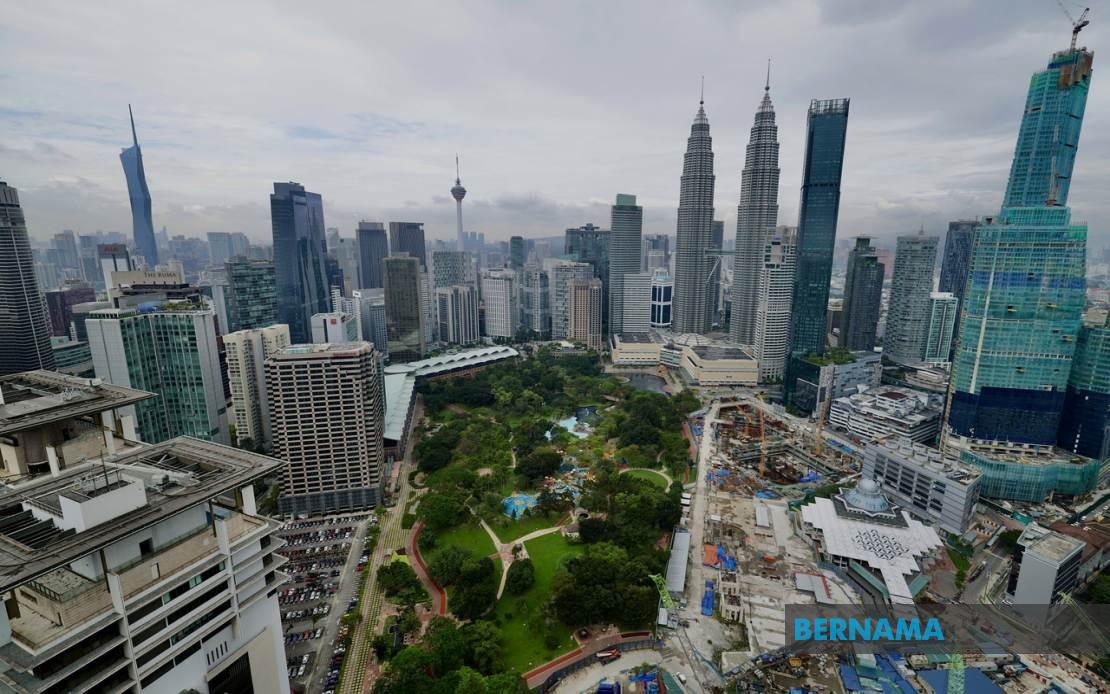
KUALA LUMPUR, July 28 (Bernama) — Bad news travels fast on social media. Good news, however, gets less attention unfortunately.
The ringgit has continued to be the top performing currency in the Asian region compared to the US dollar.
It has made a progressive climb to improve its value, driven by a mix of favourable domestic and external factors.
In short, after a bad spell, the ringgit has been stable and trading below RM4.70 against the greenback for two weeks. The forecast is that the ringgit will be at RM4.60 by the end of the year.
Malaysia has taken the right step to rebuild its external reserves through repatriation and conversion.
The subsidy rationalisation exercise, while politically unpopular and a disadvantage, to the MADANI government is the right thing to do.
It is courageous of Prime Minister Datuk Seri Anwar Ibrahim to reduce the subsidy bills, as if ignored, as a populist decision, they would have surely harmed the country’s economy in the long run.
There will never be a right time to carry out such an exercise but with the next general election still three years away and a stable government, this is surely the best window period.
Look at the figures. Putrajaya had allocated RM64 billion for subsidies in 2023 but spent RM81 billion, 26 per cent higher than projected, because of the rise in fuel prices amid the Ukraine-Russia war.
As Anwar rightly said at a dinner organised by the National Chamber of Commerce and Industry of Malaysia on Thursday, although it is economically rational, it is politically difficult.
In May, Anwar said Putrajaya would save around RM4 billion a year with targeted diesel subsidies, which began on June 10.
This saw the price of diesel fixed at RM3.35 per litre in Peninsular Malaysia, with the price maintained at RM2.15 per litre in Sabah, Sarawak and Labuan.
Subsidies are being distributed to those who are eligible through the Budi MADANI initiative and fleet cards under the subsidised diesel control system.
These are not the kind of topics that can hold the audience at a political talk, especially in justifying economic decisions.
Taking rhetorical political swipes and attacking the government would be more entertaining but the huge debt that we have today is, unfortunately, a legacy of the past administrations which refused to tackle them.
The Forbes financial magazine, in an article on July 10, reported that Anwar has rightly carried out many economic decisions.
“On the cost optimisation front, Anwar’s administration undertook the politically challenging task of rationalising subsidies and managing civil service costs.
“Transitioning new civil servants to an Employees Provident Fund scheme — projected to reduce long-term pension costs — was a significant step.
“This move aimed to alleviate the financial burden on the government by shifting future pension liabilities to a more sustainable model,” it reported.
Forbes also pointed out that the administration has expedited foreign direct investment approvals and improve the ease of doing business in Malaysia, with particular reference to high-value sectors such as semiconductor fabrication and digital technology.
A Reuters report on May 17, headlined “Malaysia’s economy grows faster than expected, inflation risks cloud outlook’’, stated that our good performance in the first quarter of 2024 was helped by household spending and a turnaround in exports.
Bloomberg reported on April 19 that “Malaysia’s economy quickened by the most in a year, signalling that firmer recovery is underway in the Southeast Asian nation.”
In the report titled “Malaysia’s Growth Accelerates, Signaling Recovery in 2024,’’ it said that “the growth print suggests Malaysia’s economy is regaining momentum after moderating last year on a tepid global demand.
“The trade-reliant nation is poised to benefit should China — Malaysia’s largest trade partner– continue to build on its surprise strong start. Bank Negara Malaysia expects gross domestic product to expand between four per cent and five per cent this year on improving external demand.”
Let’s hope that the momentum will continue and that we can hear greater details when the annual economic report and Budget are presented in Parliament.
Let’s give credit to the government when it’s due.





